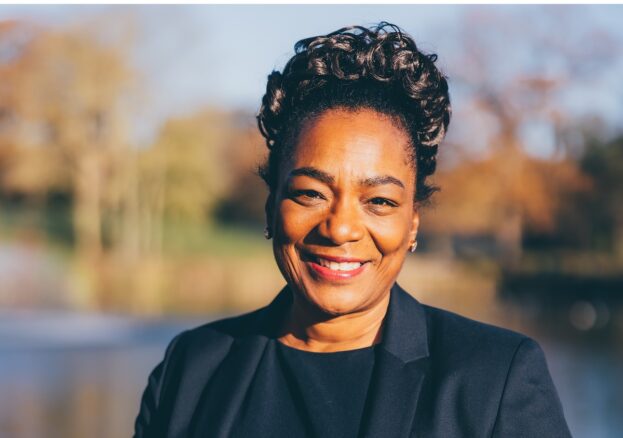
As we embrace the theme “Saluting Our Sisters” this Black History Month, what does this mean to you?
It means a lot because it is celebrating what it is to be a Black woman. It’s a great way to celebrate our achievements and how strong and phenomenal we are, but it also provides a way to honour those who have gone before us and paved the way for other Black women.
Did you choose EDI or did EDI choose you?
I would say a bit of both. As a person who has had to deal with discrimination not only for being black but for being black and a woman, I value and hold dear anything that will tackle inequities and advocate for fair treatment and the value of allyship. I value the work that I do and the difference it can make to others and I find it rewarding.
What quote or maxim keeps you going?
“The glass is half full” because I am a positive person and always try to look on the bright side. My own personal quote is “I don’t support negativity”. This quote means a lot to me because it links to who I am as a person. I feel that negativity can really keep a person down and I am not going to add to that particular thought process.
Given the low numbers of black female professors in academia, what is Essex doing to bolster numbers?
We are committed to Race Equity and have applied for the Race Equality Charter (REC). As part of that application, we’ve set ourselves actions to address race inequity at Essex and hope that these, alongside our Athena Swan gender equity action plan, will help increase representation at the University.
Another way we’re trying to increase the number of Black people in academia, is via our Transformations: Black Researcher’s Journey, which includes our Black Researchers’ Hub. This pioneering learning platform aims to break down barriers and support the next generation of Black researchers at Essex. Providing mentorship and sponsorship is also an important part of the programme.
We also run a range of leadership programmes such as Diversifying Leadership for Black Asian and Minority Ethnic staff and Arora which is a leadership programme for women. We also encourage development conversations between line managers with their teams.
Feedback truly shapes an institution’s growth. How do you champion the voices of Black students and staff, ensuring their experiences influence university policies and programs?
We have Inclusion Champions who are members of our Executive Team. These people act as champions in relation to certain characteristics and our Inclusion Champion for Race meets with a whole variety of people on our campuses to make sure they hear their concerns, but also act to address them.
We make sure our students’ voices are heard by including student reps on our Race Equality Charter self-assessment team, consulting with our students when developing key policies, and working closely with our Students’ Union to ensure our students are given the chance to influence change and be part of the solution.
How is The University of Essex proactively ensuring its recruitment practices champion diversity and accurately represent a blend of cultures, backgrounds, and experiences?
Our staff complete a range of training from unconscious and implicit bias training, to Recruitment and Selection training which provides guidance on using “positive action” where appropriate for decision making. We also offer Essential online training which includes bystander intervention and training on identifying and dealing with microaggressions.
As part of our REC action plan we will be redesigning our recruitment webpages to make sure they are more diverse. This will include looking at the design, particularly in relation to the type of images we’re using, but also by carrying case studies to illustrate the diversity of our existing staff. We’re also going to be extending our recruitment advertising to ensure that we’re reaching and attracting a more diverse pool of applicants.
Finally, are there any women you would like to salute?
There are many phenomenal Black women who have done and achieved so much and are true trail blazers. However, I would like to salute Rosa Parks, she inspired the civil rights movement by her actions in refusing to give up her seat on that bus to a white person and challenged the segregation law via legal action.
